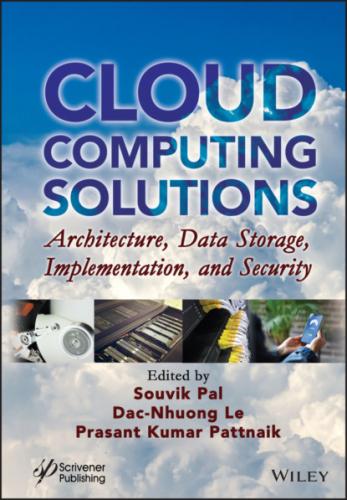Table of Contents
1 Cover
7 Foreword
8 Preface
10 Acronyms
11 PART I: Cloud Computing Architecture 1 BASICS OF CLOUD COMPUTING 1.1 Evolution of Cloud Computing 1.2 Cluster Computing 1.3 Grid Computing 1.4 Mobile Computing 1.5 Summary EXERCISES References 2 INTRODUCTION TO CLOUD COMPUTING 2.1 Definition of Cloud Computing 2.2 Characteristics of Cloud 2.3 Cloud Computing Environment 2.4 Cloud Services 2.5 Security Paradigms and Issues of Cloud Computing 2.6 Major Cloud Service Providers 2.7 Summary EXERCISES References 3 ARCHITECTURAL FRAMEWORK FOR CLOUD COMPUTING 3.1 Challenges of Cloud Computing Environment 3.2 Architectural Framework for Cloud Computing 3.3 Architectural Workflow and Co-ordination of Multiple Activities 3.4 Examples of Workflow Tools 3.5 Summary EXERCISES References 4 VIRTUALIZATION ENVIRONMENT IN CLOUD COMPUTING 4.1 Introduction 4.2 Virtualization and Virtual Machine 4.3 Virtualization Model for Cloud Computing 4.4 Categorization of Guest OS Virtualization Techniques 4.5 Mapping Technique of Virtual Machine to Physical Machine in a Private Cloud 4.6 Drawbacks of Virtualization 4.7 Summary EXERCISES References 5 CLASSIFICATION OF VIRTUALIZATION ENVIRONMENT 5.1 Introduction 5.2 Classification 5.3 Summary EXERCISES References
12
PART II: Cloud Computing Data Storage
6 AN APPROACH TO LIVE MIGRATION OF VIRTUAL MACHINES IN CLOUD COMPUTING ENVIRONMENT
6.1 Introduction
6.2 Need of Live Migration of Virtual Machine
6.3 Advantages of Live Migration
6.4 A Design Approach to Live Migration
6.5 Security Issues
6.6 Summary
EXERCISES
References
7 RELIABILITY ISSUES IN CLOUD COMPUTING ENVIRONMENT
7.1 Introduction
7.2 Literature Review
7.3 Reliability Issues in Cloud Computing Research
7.4 Findings
7.5 Summary
EXERCISES
References
8 CLOUD DATABASE
8.1 Introduction
8.2
